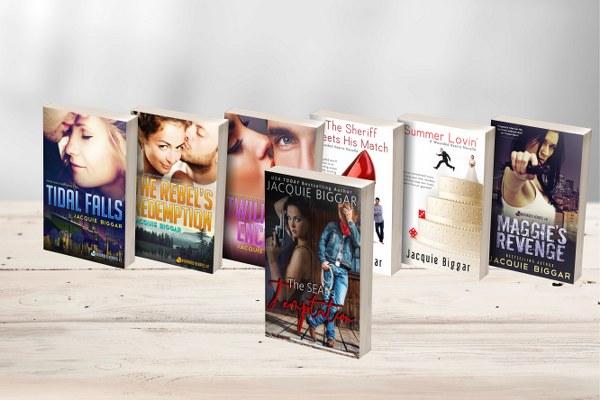Tuesday, March 23, 2021
The Seal's Temptation by Jacquie Biggar (@JacqBiggar) Blog Tour & Giveaway
Sunday, March 7, 2021
Back to School/College/Uni and Need a Helping Hand?
 |
| http://clipartmag.com/google-clipart |
Wednesday, March 3, 2021
Why Can't a Woman be More Like a Man? By Guest Author @JennyTwist1
Welcome back guest author Jenny Twist with another amusing and thoughtful post. If you enjoy it, why not check out some of her previous essays on this blog, including the ever-popular The Earth Mother Rules!:
Why Can't a Woman be More Like a Man?
 |
| By Nik Cyclist from Bangkok, Thailand - Chaophraya River |
But my husband, supremely confident in his own navigational skills, consulted his map, with the rather dubious assistance of the nearest street lamp, then triumphantly led us to the restaurant.
It beats me how he does it! To me maps bear only a passing resemblance to reality. Indeed, it seems whenever I have to consult one, reality is invariably upside-down or sideways.
My husband, like most men, seems to be constantly aware of where he is in relation to the rest of the world and is able to relate it to a larger picture. I, on the other hand, like most women, am only really aware of my position in familiar places. I know my home, my workplace, where I do the shopping, etc. and am familiar with the routes linking these places, but I have only the haziest idea of how they fit in with the larger reality.
It would appear that the ability to read maps is gender-related. Most men seem to be able to do it without difficulty. Most women prefer to use landmarks.There are other abilities, too, which seem to me to be gender-related. Men can run fast and efficiently, throw balls straight and hard, park cars in small spaces. Women can multi-task, find things and empathise.
Of course we can all be trained to do any of those things, but it seems to me that there are inherent abilities which are stronger in one sex than the other.
Why should there be these differences and does it matter?
I think the reason for the differences is as old as mankind itself. Primitive man had little choice about division of labour. Since at any given time a significant proportion of the young women in the tribe would be pregnant or nursing, it must have been the men who did most or all of the hunting and it therefore made sense for the women to look after the homestead.
If we look at the skills required for the two tasks, we will see that they are quite different. To hunt effectively, you require a good understanding of a large area of territory and to know where you are within it. The ability to run fast and throw accurately goes without saying. And it is essential to be able to concentrate on the job in hand. The hunter can not afford to be distracted by his surroundings. He has to be able to focus on the job in hand. And he has to keep communication simple and unequivocal. It is essential that every word or hand signal has one meaning and one meaning only. It would be disastrous to interpret ‘Lion behind you!’ as ´Did you remember to bring the lunch?’
To run a homestead effectively, however, requires an entirely different set of skills. It is much more important to know your home area in great detail than it is to have an awareness of the territory around it. Ability to run and throw is of limited value. And, instead of focussing on one thing at a time, it is important to be aware of and controlling several things at once. Even a housewife in very primitive times would have several tasks running simultaneously - preparing food, watching the fire, supervising children, etc. As for communication, straightforward verbal language is fine for adults, but when it comes to dealing with children too young to have developed speech, it is very useful to be able to read their body language in order to understand what they need.
In other words, the human race has spent hundreds of thousands of years developing spatial skills in men and developing empathy in women. It is hardly surprising that these abilities persist in modern society, even though their relative usefulness is now less apparent.
It has, however, left us with a problem of communication between the sexes. Women are so used to reading and interpreting body language that not only do we regularly fail to understand when men miss our signals, but we have developed a whole system of communication which allows us to say one thing whilst meaning another.
Consider, for example, how a woman behaves when she is not feeling very well. She expects peoplearound her to be aware of this, without her having to spell it out for them. If somebody asks if she is feeling OK, she is very likely to reply, “Yes, I’m fine” leaving it to be understood that she is not fine, but being very brave about it. Another woman will see this immediately and sympathise. A man is very to likely to say, “That’s all right then” and walk out, leaving her frustrated and upset. She may well be left with the feeling that the man is insensitive and/or uncaring.
Although understandable, such a belief is unjust. It is not that men are insensitive or even that they are entirely illiterate in body language. Men can read signals, but they are generally less sure of themselves when it comes to interpreting and responding. The man in the example above is almost certainly aware that there is something wrong, but he has taken her reply to mean ‘I am not fine, but I don’t want to talk about it.’
This lack of communication is not only a shame and a misuse of what, after all, is a very valuable skill, but it can lead to quite dangerous misunderstandings. The propensity of women to say one thing when they mean another surely helps support the belief that when a woman says ‘no’, she means ‘yes’- used as a justification for rape throughout the ages.
Modern society has gone a long way towards dispelling that particular belief, but it has not done much to change the ways of thinking that led to its development in the first place.
I am not suggesting for one moment that either sex should adopt the other’s method of communication. But we could each understand how the other works and perhaps learn to employ a little of the other’s skills.
Empathy is extremely useful for identifying problems, but it is unspecific and open to misinterpretation. So we need verbal language to augment our understanding.If women want men to respond sympathetically, then we need to be a bit more precise. If, instead of saying ‘Fine’, we said, ‘No, I’m feeling awful and I could do with a hug,’ we would be much more likely to get the right response.
And my advice to the poor Henry Higgins’s of this world, who remain baffled by their inability to understand women, would be - ‘Just give them a hug anyway. Nine times out of ten you’ll be right.’
She left school at fifteen and went to work in an asbestos factory. After working in various jobs, including bacon-packer and escapologist’s assistant (she was The Lovely Tanya), she returned to full-time education and did a BA in history, at Manchester and post-graduate studies at Oxford.
She stayed in Oxford working as a recruitment consultant for many years and it was there that she met and married her husband, Vic.
In 2001 they retired and moved to Southern Spain where they live with their rather eccentric dogs and cat. Besides writing, she enjoys reading, knitting and attempting to do fiendishly difficult logic puzzles.
Since moving to Spain she has written four novels and numerous short stories.
In July 2018 she was awarded the coveted TOP FEMALE AUTHOR award in Fantasy/Horror/Paranormal/Science Fiction by The Authors Show.
Why Can't a Woman be More Like a Man? was first published in An Open Letter to Stephen King and Other Essays (2014).














